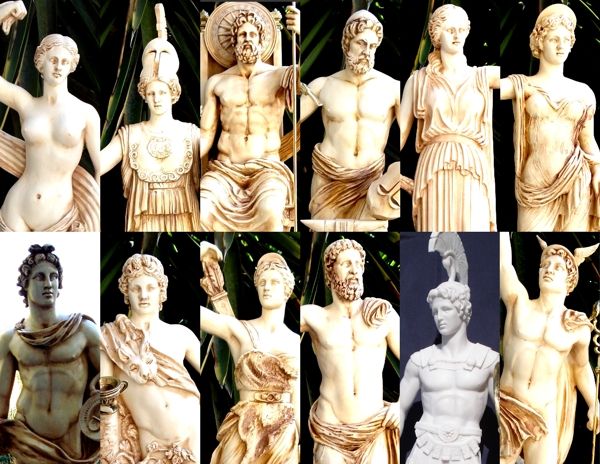Meaning
Pluton comes from the *Greek* word **Pluto**, the god of the underworld. In Greek mythology, Pluto was a powerful deity associated with wealth and the riches found within the earth.
The name has deep roots in ancient culture and religion. Its association with wealth and the unseen depths of the earth likely influenced its adoption as a given name for boys in some cultures.
Over time, the name Pluton evolved and variations emerged in different languages. Latin speakers adopted the equivalent **Pluto**, which was also used in ancient Roman mythology to refer to their god of the underworld.
The name’s enduring appeal may stem from its powerful connotations. It suggests strength, mystery, and perhaps even a touch of darkness. While Pluto is primarily associated with the god of the underworld, it also carries positive symbolism related to abundance and hidden treasures.
Plouton, a name rich with history and layered meaning, derives from ancient Greek mythology. It refers to the god of the underworld, often associated with wealth, not in a monetary sense, but in the abundance of precious metals and gems hidden within the earth.
The name’s origin can be traced back to the Greek word “πλούτων” (ploutōn), meaning “wealth” or “riches.” This association is deeply rooted in ancient beliefs about the underworld as a realm where valuable treasures were stored and guarded by Plouton.
In mythology, Plouton was often depicted with symbols of abundance, such as keys representing the gates of the underworld and cornucopias overflowing with precious metals and jewels. He was believed to control not only the riches buried within the earth but also the cycles of life, death, and rebirth, symbolizing the cyclical nature of wealth and its constant transformation.
The Roman equivalent of Plouton was Pluto, a name that has endured through centuries and continues to be used today. This enduring legacy reflects the lasting impact of ancient beliefs about the underworld and its association with hidden wealth.
Origin
Plouton derives from the Ancient Greek word “πλούτων” (plouton), meaning “wealth,” “abundance,” or “riches.”
In Greek mythology, Plouton was the god associated with the underworld, the realm of the dead. He was also known as Hades, a name derived from the Greek word “άδης” (ádes), meaning “the unseen” or “invisible.” While both names referred to the same deity, “Plouton” emphasized his dominion over wealth and resources, which were believed to be abundant in the underworld.
The association of Plouton with wealth likely stemmed from the belief that precious metals and minerals were found deep within the earth. The underworld was also seen as a place where souls accumulated riches after death, further linking the god to concepts of abundance.
Plouton’s characterization varied across different myths and accounts. He was often depicted as a stern and formidable figure, ruling his domain with justice and authority. However, he wasn’t necessarily malevolent. He was seen as a neutral force, ensuring the proper function of the underworld and upholding the natural order.
The name Plouton offers a fascinating glimpse into ancient Greek beliefs about death, wealth, and the mysteries of the unseen world. It reveals the intricate connections between these concepts and how they were intertwined in the minds of the Greeks.
The name “Pluto” holds a significant place in Roman mythology and culture, directly tied to the god of the underworld. However, its etymology and meaning reveal a fascinating story of cultural adaptation and linguistic evolution.
“Pluto” is derived from the Latin word “plūtos,” which means “wealth” or “riches.” This seemingly paradoxical association stems from the ancient Greeks’ belief that the earth itself was a source of immense wealth, hidden beneath its surface. The precious metals, minerals, and fertile soil were seen as treasures belonging to the ruler of the underworld.
The Roman equivalent of the Greek god Hades was known as Pluto. This association with wealth extended to the concept of afterlife riches. Romans believed that after death, individuals entered a realm where they would reside with their accumulated earthly possessions. This reinforced Pluto’s connection to prosperity, even in the shadowy domain he governed.
Interestingly, the Roman name “Pluto” likely served as a more palatable alternative to the Greeks’ darker portrayal of Hades. While Hades was often associated with fear and terror, Pluto represented a more benevolent aspect, overseeing the distribution and protection of wealth for the departed souls.
The influence of “Pluto” on Roman culture extended beyond religion. Coins minted during the reign of emperors often bore Pluto’s image alongside symbols of agriculture and abundance, reinforcing his association with prosperity and earthly resources.
Moreover, “Pluto” found its way into everyday language. Expressions like “plutocracy,” referring to rule by the wealthy, and the word “plutonian” used to describe something related to the underworld, all bear testament to the lasting impact of Pluto’s name on Roman thought.
History
Plouton, a name resonating with the shadows and depths of the underworld, derives from the ancient Greek word *ploutōn* (πλοῦτος).
*Ploutōn*, meaning “wealth” or “riches”, holds a fascinating duality in its etymological roots.
This connection to material wealth reflects a societal understanding of the underworld as a realm of vast, hidden treasures.
Beyond material riches, *ploutōn* also carried connotations of abundance, fertility, and the life-giving force of the earth.
This duality is mirrored in Plouton’s multifaceted role within Greek mythology.
Plouton, the god of the underworld, was considered both a fearsome figure who oversaw the realm of the dead and a benevolent provider whose domain held immense power over life itself.
He was associated with **agriculture**, **mining**, and **precious metals**. This connection to earthly resources solidified his image as the god of abundance, responsible for ensuring the bounty of the earth.
The name Plouton’s association with wealth can also be understood through the lens of ancient religious practices.
Offerings were frequently made to Plouton in hopes of securing prosperity and good fortune, signifying his role as a deity who could influence the material world.
Interestingly, *Ploutōn* is often linked to the Roman god **Pluto**, highlighting the close connections between Greek and Roman mythology.
Both deities share similar attributes and domains, solidifying Plouton’s enduring legacy as a prominent figure in classical antiquity.
Plouton is a name rooted in ancient Greek mythology, specifically associated with the god of the underworld.
Its etymology traces back to the word “ploutōn,” meaning “wealth” or “riches” in ancient Greek.
This connection stems from the belief that the earth itself was a source of valuable resources and treasures, which were believed to be held by the underworld deities.
The name Plouton was thus a reflection of the god’s dominion over these subterranean riches.
While Plouton was a significant figure in Greek mythology, he was less prominent than other gods like Zeus or Poseidon.
Over time, the Roman equivalent of Plouton, Pluto, became more widely recognized and adopted in Western culture.
This shift can be attributed to the Romans’ extensive influence on language and literature throughout Europe and beyond.
Pluto remains a popular name choice today, particularly in English-speaking countries.
It evokes connotations of power, mystery, and wealth.
While Plouton has largely faded from common usage, its legacy lives on through its Roman counterpart and continues to inspire artistic and literary creations.
The name retains a certain mystique and intrigue, reminding us of the ancient Greek beliefs about the underworld and its treasures.
- Best LeadsGorilla Alternatives for 2025 - April 26, 2025
- Best Overloop Alternatives for 2025 - April 25, 2025
- Best Lead411 Alternatives for 2025 - April 25, 2025


